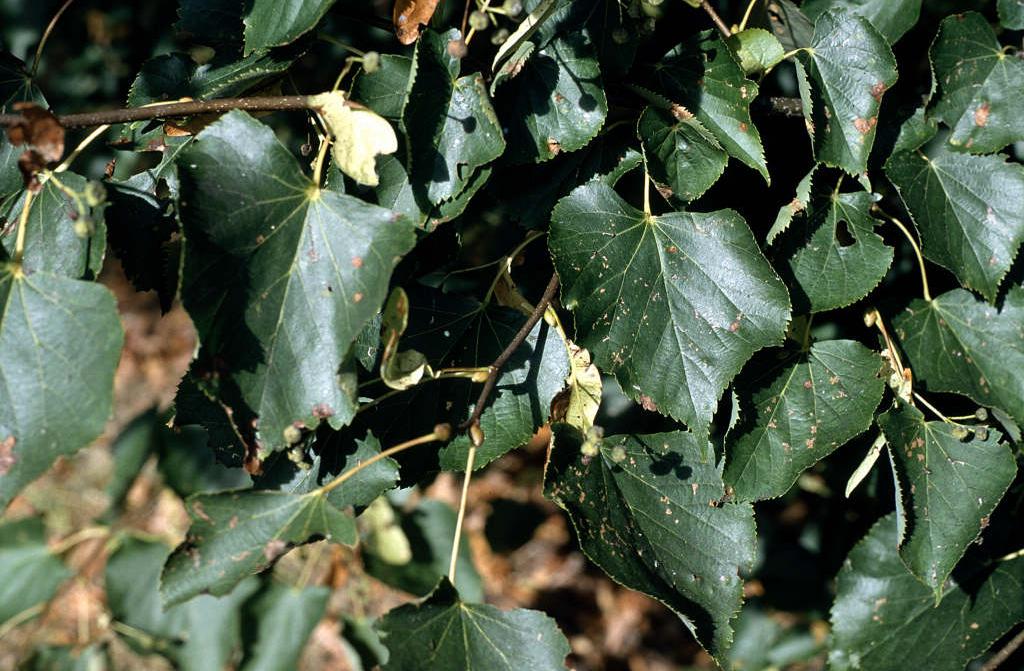Tilia cordata
small-leaved lime
A broadly columnar, deciduous tree to about 25m tall, with a spreading or rounded crown, and glossy dark green, heart-shaped leaves to 8cm in length, turning yellow in autumn. Small, fragrant pale creamy-yellow flowers are borne in spreading clusters of up to 10 flowers in midsummer

Buy this plant
Size
Ultimate height
Higher than 12 metresTime to ultimate height
20–50 yearsUltimate spread
Wider than 8 metresGrowing conditions
Moisture
Moist but well–drainedpH
Alkaline, Neutral, AcidColour & scent
| Stem | Flower | Foliage | Fruit | |
| Spring | Green Blue | |||
|---|---|---|---|---|
| Summer | Yellow | Green Blue | ||
| Autumn | Yellow | |||
| Winter |
Position
- Full sun
- Partial shade
Aspect
South–facing or West–facing or East–facing
Exposure
Sheltered Hardiness
H6Botanical details
- Family
- Malvaceae
- Native to GB / Ireland
- Yes
- Foliage
- Deciduous
- Habit
- Spreading branched
- Genus
Tilia are deciduous trees with broadly ovate or heart-shaped leaves and pendulous clusters of fragrant yellow-green flowers, followed by conspicuous winged fruits
- Name status
Correct
- Plant range
- Europe, SW Asia
How to grow
Cultivation
Suitable for parks and very large gardens. Grow in moist but well-drained soil in full sun or part shade, with shelter from cold winds. For more advice see tree cultivation
Propagation
Propagate by seed, stratified in containers outdoors in spring. See propagate from seed (tree/shrub) Propagate by chip budding although care must be taken with the choice of rootstock
Suggested planting locations and garden types
- Architectural
- Wildlife gardens
- Hedging and screens
Pruning
Pruning group 1; a suitable tree for coppicing, pleaching and pollarding
Pests
May be susceptible to aphids, horse chestnut scale, caterpillars, sawflies and gall mites
Diseases
May be susceptible to sooty mould, phytophthora root rot and honey fungus
Get involved
The RHS is the UK’s gardening charity, helping people and plants to grow - nurturing a healthier, happier world, one person and one plant at a time.